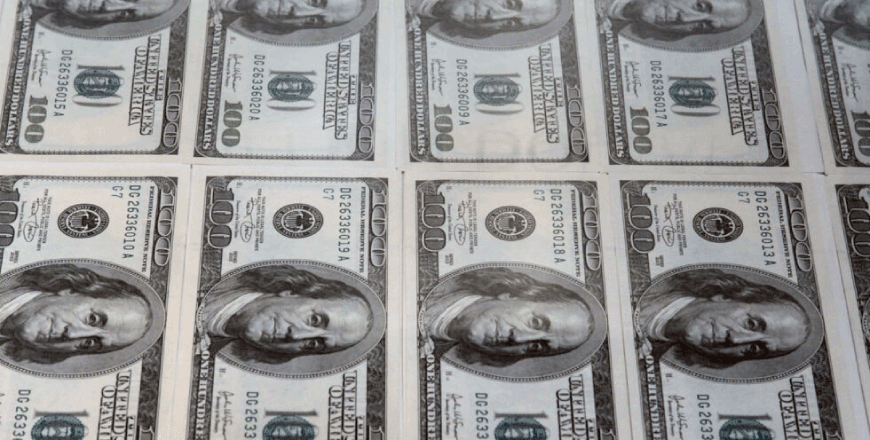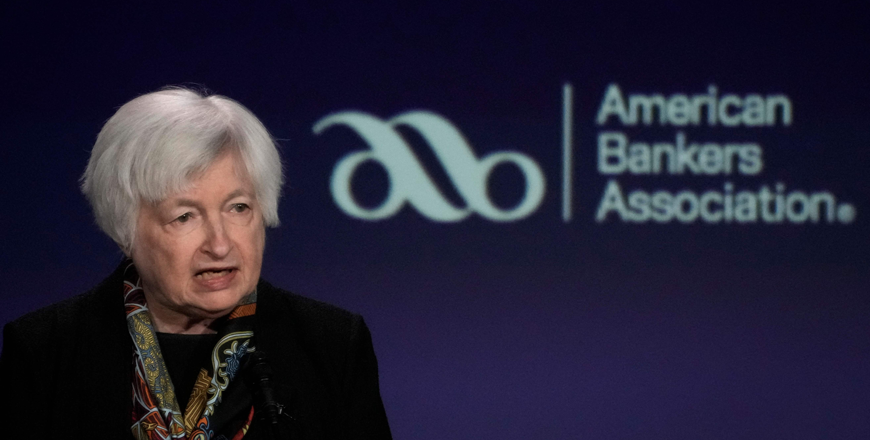You are here
Four days that shook the US banking system
By AFP - Mar 13,2023 - Last updated at Mar 13,2023
NEW YORK — The US banking system has been gripped in recent days by a series of convulsions that has seen the collapse of three banks and authorities undertaking extraordinary measures to reassure depositors.
It all began Wednesday night with a liquidation announcement from the small regional Silvergate Bank, a favourite among the cryptocurrency crowd.
The California business was swept up in several crypto mishaps, particularly the implosion of exchange platform FTX, before facing a wave of sudden withdrawals.
Later that same night, medium-sized institution Silicon Valley Bank announced it was facing a huge run of unexpected withdrawals.
SVB, a key lender to startups across the United States since the 1980s and the country’s 16th-largest bank by assets, had been hit by the tech sector slowdown as cash-hungry companies rushed to get their hands on their money.
SVB — along with other banks — was also dealing with the effects of the Federal Reserve’s policy U-turn as the US central bank has moved aggressively over the last year to counter inflation by hiking interest rates.
Banks typically borrow money under short-term instruments while loaning using long-term vehicles.
Ordinarily, this dynamic is beneficial because interest rates on long-term instruments are higher than those on short-term bonds.
But because of the volatility unleashed by the Fed’s policy pivot, there has been an “inversion” of the bond yield curve.
Run on deposits
The extent of SVB’s trouble emerged in a presentation last Wednesday.
While the bank emphasiaed the strength of its balance sheet and the relatively low proportion of its loans compared to its deposits, it also announced a capital increase of $2.25 billion and revealed that after an emergency sale of a portfolio of financial securities worth $21 billion it still came out with a loss of $1.8 billion.
The announcement spooked investors and clients, and sparked a run on deposits.
On Thursday alone, SVB saw an estimated $42 billion of withdrawal orders.
It was not able to honour all those requests, and posted a negative cash position of nearly $1 billion by the end of the day.
On the stock market, SVB tanked by 60 per cent.
Trading was halted on Friday before the Federal Deposit Insurance Corporation (FDIC) took over the bank and said it would protect insured deposits — those up to $250,000 per client.
But the FDIC’s guarantee only covered about four percent of the bank’s deposits, with most accounts well over that limit and clients left uncertain as to whether they would be able to recover their money in full.
The biggest US banks are considered stable, in part because of strict requirements enacted after the 2008 financial crisis.
But other mid-sized and regional institutions have been pressured by worries of a similar run on deposits to that suffered by SVB.
Shares in the New York Signature Bank, California PacWest and the Arizona-based Western Alliance all dropped 20 per cent on the day.
Averting panic
With SVB’s future, and billions in deposits up in the air, officials from the Fed, the FDIC and the Treasury raced to craft a solution, hoping to avert a potential financial panic before financial markets opened in Asia.
To stop one bank’s failure from spreading into a systemic banking crisis, the three federal agencies announced on Sunday that SVB depositors would have access to “all of their money” starting on Monday, March 13, and that American taxpayers will not have to foot the bill.
The same statement revealed that Signature Bank, the 21st-largest in the country, was automatically closed on Sunday and that its customers would benefit from the same measures as those at Silicon Valley Bank.
In a potentially major development, the Fed announced it would make extra funding available to banks to help them meet the needs of depositors, which would include withdrawals.
On Monday, President Joe Biden praised the “immediate action” by regulators while trying to offer reassurances.
“The bottom line is this: Americans can rest assured that our banking system is safe. Your deposits are safe,” Biden said.
Related Articles
NEW YORK — In the wake of the latest US banking meltdown, small lenders might appear vulnerable to an exodus of depositors fleeing for large
WASHINGTON — The US banking sector is "stabilising" after the recent failures of Silicon Valley Bank (SVB) and Signature Bank rattled the in
US regulators warned Tuesday that 11 giant banks have unrealistic contingency plans in the event of bankruptcy and warned that if they fail they could plunge the world into a new financial crisis.


















